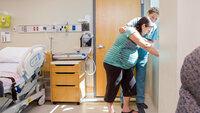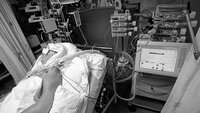319 hit for Barrierer
Rekruttering til Hjerteskolen – tilfeldig eller velbegrunnet helsepedagogisk tiltak?
Rekruttering til Hjerteskolen virker tilfeldig, der «det gjelder å få dem på listen». Helsepersonell bør kommunisere bedre i fagmiljøet og utarbeide retningslinjer for rekrutteringen.
Jordmorpraksis ved forebygging av langvarig fødselsforløp: en klinisk audit
Få jordmødre fulgte anbefalingene om å definere aktiv fødsel i elektronisk journal. Det er usikkert hvor mange fødekvinner som fikk kontinuerlig oppfølging av jordmor.
Smitteforebygging i hjemmesykepleien: erfaringer fra sykepleieledere og sykepleiefaglige konsulenter
Lokale prosedyrer er nyttig, men ikke tilstrekkelig for å etterleve basale smittevernrutiner i hjemmesykepleien. Det er derfor behov for å utvikle nasjonale retningslinjer.
Uklare rammer gjør det vanskelig å ivareta barn som pårørende
Helsepersonell som arbeider med psykisk syke eller rusmisbrukende pasienter som har barn, er utrygge i rollen. Dermed blir det tilfeldig hvilken hjelp barna får.
Verktøyet ISBAR fører til bevisst og strukturert kommunikasjon for helsepersonell
Studenter som brukte dette rammeverket for kommunikasjon, formidlet mer konkrete observasjoner, synset mindre, ble bedre på teamarbeid og forbedret pasientsikkerheten.
«Personaer» for å styrke hjemmedialysepasientens rolle i innovasjonsprosessen
Da en digital oppfølgingsløsning for hjemmedialyse skulle utvikles, var pasientene for syke til å delta. Løsningen ble å bruke fiktive pasienter – personaer eller personas.
Sikkerhetstiltak for legemidler i sykehjem
Nye reformer og tidstyver som rengjøring, matlaging og dårlige IKT-løsninger fører til at sykepleiere nedprioriterer sikkerhetstiltak knyttet til legemiddelbehandling.
Train the trainer - refleksjonsgrupper i pleie- og omsorgssektoren
Studien viser at systematisk refleksjon over egen praksis kan bidra til endring og være positivt for arbeidsmiljøet.
Retningslinjer økte bruk av enteral ernæring til intensivpasienter
Innføring av retningslinjer medførte at intenisvpasientene fikk mer enteral og mindre parenteral ernæring.













